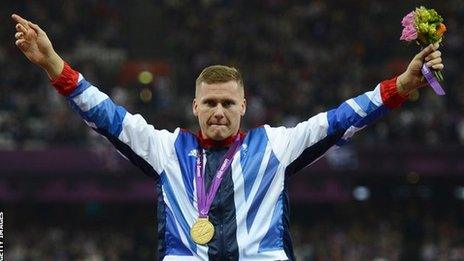Tokyo 2020: Olympic and Paralympic sports to learn of funding decision for next cycle
- Published
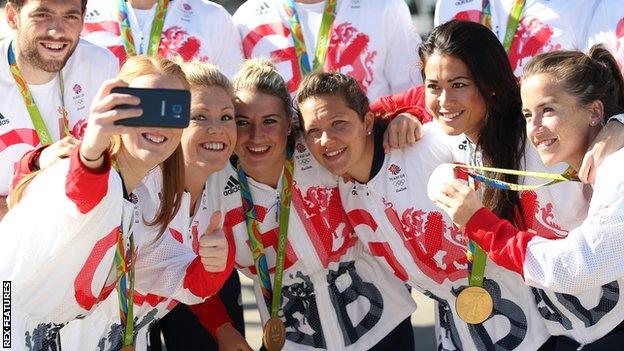
Of the 366 athletes that went to the Rio Olympic Games for Team GB, 130 of them returned with a medal
Britain's Olympic and Paralympic sports will find out at 14:00 GMT on Friday how much funding they will receive from UK Sport for the 2020 Games in Tokyo.
A record £347m was made available for the last four-year cycle, with Paralympic sports receiving a 43% rise.
The result was unprecedented success for GB's teams at the Rio Games, with the Olympics yielding 67 medals and the Paralympics a stunning 147.
Funds are raised via the National Lottery and taxation.
Sports minister Tracey Crouch says any "uncertainty" around future funding amid a decline in the number of National Lottery players will be offset by the Department for Culture, Media and Sport (DCMS).
"UK Sport may need to make decisions based on conservative assumptions of Lottery income," she added.
"This could impact the number of sports and the number of athletes that could be supported between now and the Olympic and Paralympic Games in Tokyo.
"The department will provide additional funding to allow Team GB and ParalympicsGB to be properly supported in Tokyo."
Who got what for Rio 2016?
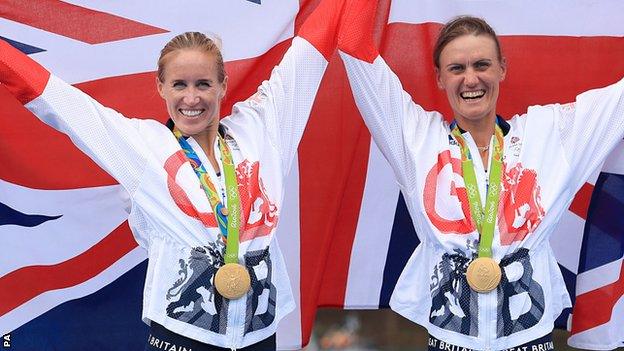
Rowing received £32.6m in the last cycle, with Helen Glover (left) and Heather Stanning going on to win gold in Rio
With the £274.5m of National Lottery money allocated to Olympic sports came a comprehensive list of medal targets from UK Sport.
It said its decisions are not based solely on past performances, rather realistic medal opportunities in Tokyo.
Rowing was rewarded for a successful London 2012 with £32.6m of funding for 2016 - the highest amount in the last cycle.
It won three golds and two silver medals in Rio, but fell one short of its minimum medal target of six.
It was one of only two sports that failed to live up to expectations, with GB's modern pentathletes failing to win a medal after being set a target of one.
Cycling was the second-highest funded sport following London with £30.6m, and it exceeded UK Sport's goals for Rio by winning 12 medals - six of them gold - to beat the maximum target of 10 it was set.
ParalympicsGB was challenged by UK Sport to win one medal more than the 120 it collected in London, and far surpassed that goal in Rio.
Athletics was the biggest beneficiary in the Paralympic sports with their funding increased by more than £4m last time, while swimming and cycling were also boosted following London 2012.
A DCMS spokesperson added: "Our athletes made the nation proud in Rio with incredible performances that led to Team GB and ParalympicsGB finishing second in the medal tables.
"Our approach to elite sport is world class and we are committed to keeping up this momentum and supporting our athletes all the way to Tokyo.
"That is why it is our intention to underwrite lottery funding for UK Sport to ensure levels of investment are maintained in the run up to the Games in 2020."
How does funding affect performance?
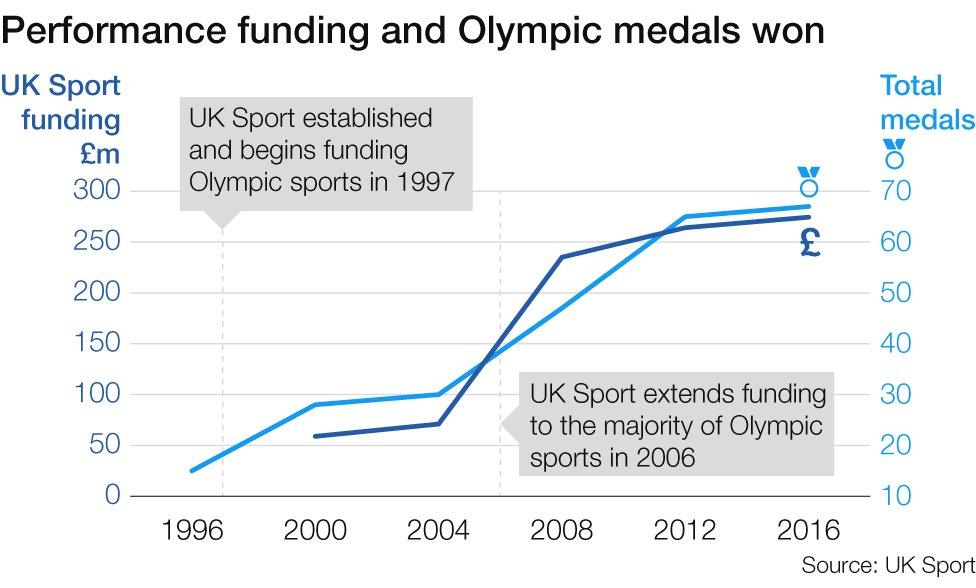
From just £5m per year before the 1996 Games in Atlanta, where GB won one gold and 15 medals in total, UK Sport's Olympic spending rose to £54m by the 2000 Games in Sydney, where Britain won 11 golds and 28 medals in total to leap to 10th on the medal table.
By the 2012 Games in London, where Britain came third in the medal table with 65, that amount had climbed to £264m.
Between 2013 and 2017, almost £350m in public funds will have been spent on Olympic and Paralympic sports.
Gymnastics, given nothing at all before Atlanta, received £5.9m for Sydney and £14.6m in the last cycle.
In Rio, Max Whitlock became Britain's first Olympic champion, winning two gold medals; his team-mates delivered another silver and three bronzes.
However, the men's and women's handball teams, who finished last in their groups in 2012, had their £2.92m funding to support elite athletes cut completely.
Sporting governing bodies have also been warned by UK Sport and Sport England they must bring in more women or lose public funding.
Under the new 'Code for Sports Governance', organisations must adhere to "gold standards" of transparency, accountability and financial integrity.
The code sets out a target of at least 30% gender diversity on boards.
The new code applies to governing bodies who ask for UK government and National Lottery funding from April 2017.
- Published31 October 2016
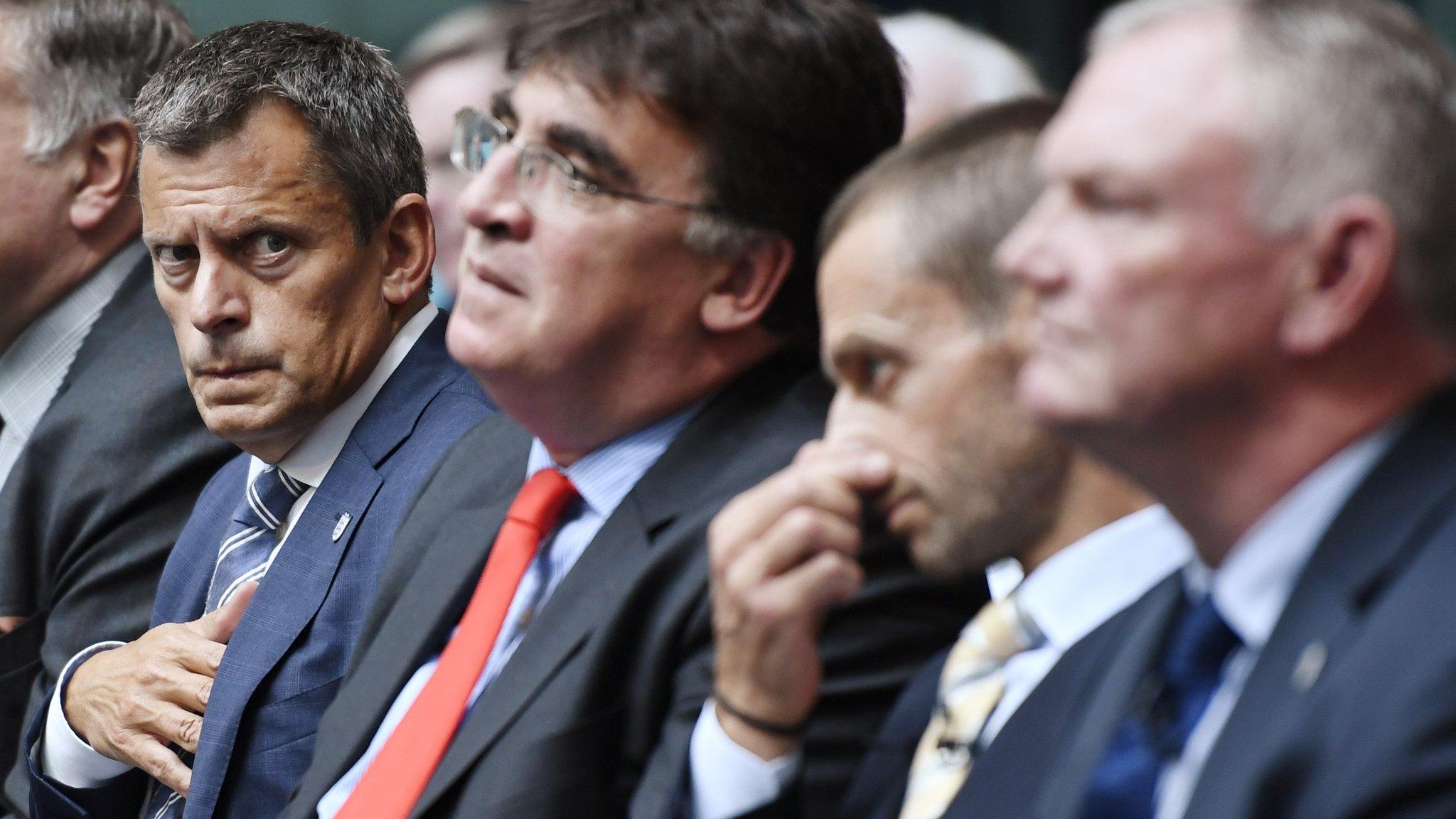
- Published21 August 2016
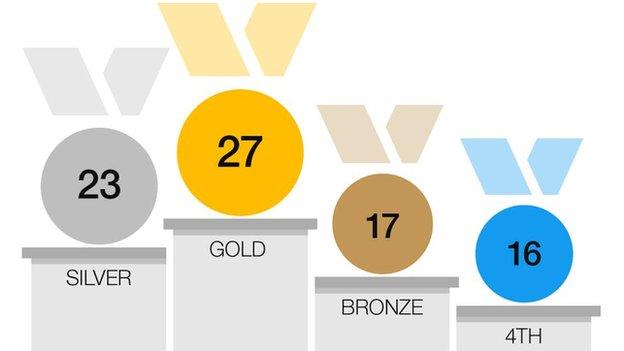
- Published19 December 2012
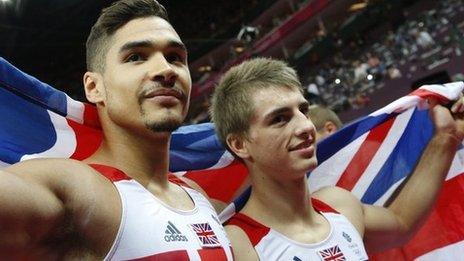
- Published18 December 2012
